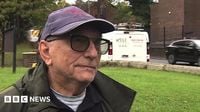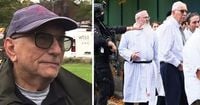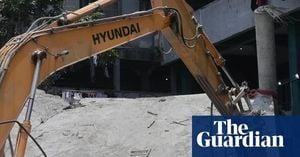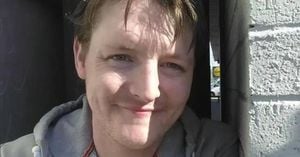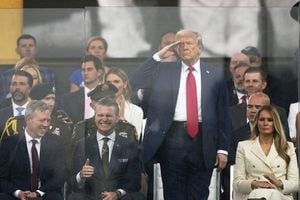On the morning of October 2, 2025, the tranquil preparations for Yom Kippur at Manchester’s Heaton Park synagogue were shattered by a violent attack that left two worshippers dead and a community forever changed. The events of that Thursday have since reverberated across the United Kingdom, prompting soul-searching about security, faith, and the future of Jewish life in Britain.
According to BBC and the Daily Mail, the first signs of trouble came when Ivor Rosenberg, a 78-year-old volunteer security guard, was alerted to a “suspicious-looking man” lingering near the synagogue. The man, later identified by police as 35-year-old Jihad Al-Shamie, initially claimed he was searching for a nearby pub before disappearing down an alleyway. When Rosenberg confronted him, Al-Shamie shifted his story. “There was a fence between us and I said, ‘What are you doing?’ and he says, ‘I’m looking for my car’,” Rosenberg recalled in an interview with BBC.
Rosenberg sensed something was amiss. He and fellow volunteer Alan Levy—both working alongside paid security—asked Al-Shamie to leave. But the man returned, this time bristling at their request. “This is a free country, I can go wherever I want,” he reportedly told the guards, as recounted by both BBC and the Daily Mail.
What followed was a harrowing sequence of events. Al-Shamie left the area on foot, only to return minutes later in a dark car—a black Kia Picanto, according to the Daily Mail. He drove the vehicle into the crowd of worshippers gathered outside, then leapt from the car wielding a knife, attempting to stab anyone in his path. “I heard this almighty bang, turned around and saw the car, a dark car, smashed into the wall and gates,” Rosenberg told BBC Manchester.
Rosenberg and Levy rushed into the synagogue, slamming the doors behind them. With Al-Shamie now outside, brandishing a knife and hurling plant pots at the windows, the volunteers and several congregants held the doors shut from within. “I rushed straight into the office and I dialled the police and I was screaming down the phone, ‘we’re under attack, we’re under attack’,” Rosenberg recounted. Outside, Al-Shamie could be heard shouting, “let me in, I’m going to kill you.”
Inside, panic and resolve mingled. Rabbi Daniel Walker and others joined in barricading the doors, determined to keep the attacker out. According to the Daily Mail, footage later emerged showing Al-Shamie trying each door in turn, desperate to force his way inside. “Everyone who was guarding the doors, they’re all heroes. They stopped a massacre,” Rosenberg said, his voice heavy with emotion.
Tragically, despite their efforts, two lives were lost. Melvin Cravitz, 66, a security guard and beloved member of the congregation, was fatally stabbed while trying to protect others. Adrian Daulby, 53, another congregant, was killed outside the synagogue, believed to have been struck by a stray bullet as police fired at Al-Shamie. The attacker, wearing what appeared to be an explosive vest—later revealed to be fake—was shot dead by police within seven minutes of the emergency call.
Three more victims remain hospitalized with serious injuries. Among them is Yoni Finlay, who, according to his 15-year-old son Uriel (speaking to ITV News), was shot accidentally by a bullet that passed through the door as he helped barricade the synagogue. “My dad is a complete hero, he saved so many lives, and I’ll never, ever forget that,” Uriel said.
In the aftermath, the community has struggled to come to terms with the violence. More than 1,000 people attended a rally in Manchester city centre on October 5, 2025, to honor those killed and injured. At Agecroft Cemetery in Salford, over 300 mourners gathered to pay respects to Melvin Cravitz, described by his family as “kind and caring,” and by friends as an “uncle figure” to many. Rabbi Walker, in his eulogy for Adrian Daulby, spoke of his quiet strength: “In that moment of need, that quiet man became a tremendously strong hero.”
Police and counter-terrorism officers have since arrested six people in connection with the attack. Four remain in custody on suspicion of terrorism-related offenses, while two were released without charge. Investigators continue to piece together the full picture, seeking to understand Al-Shamie’s motives and whether others may have been involved. Notably, Al-Shamie was reportedly on bail for rape at the time of the attack, a detail that has sparked additional scrutiny of the criminal justice system, as reported by the Daily Mail.
The attack has cast a long shadow over the Jewish community in Manchester and beyond, especially as the Sukkot festival approaches. “We are devastated. We’ve lost two of our members killed because they were Jewish. And it could have been any of us,” Rosenberg told BBC. The sense of vulnerability is palpable. “I don’t think this is a safe country for Jews to live in. That’s what happened last Thursday and I think that will happen again,” he said, his concern extending to future generations: “I’m worried for the future, not for my future, but for my children and my grandchildren and their children.”
The courage of those who stood between the attacker and the congregation has been widely recognized. “I said to Alan [Levy] when we confronted him at the front of the shul, if he had a gun, we’d both be dead,” Rosenberg reflected, acknowledging both the luck and bravery that prevented even greater loss.
The events at Heaton Park synagogue have reignited debates about security at places of worship, the adequacy of police response, and the broader climate for minorities in the UK. Political leaders across the spectrum have condemned the violence, with calls for increased protection for vulnerable communities. Yet for those who lived through the attack, the path forward is uncertain. As one rally attendee put it, “We have to stand together, but we also have to face the reality of what’s happening.”
As the Jewish community prepares for Sukkot, the mood is somber. Celebrations will be “very different” this year, Rosenberg noted. But in the face of adversity, the resilience and solidarity on display in Manchester offer a measure of hope. For now, the memory of those lost—and the heroism of those who stood in harm’s way—will not soon be forgotten.
